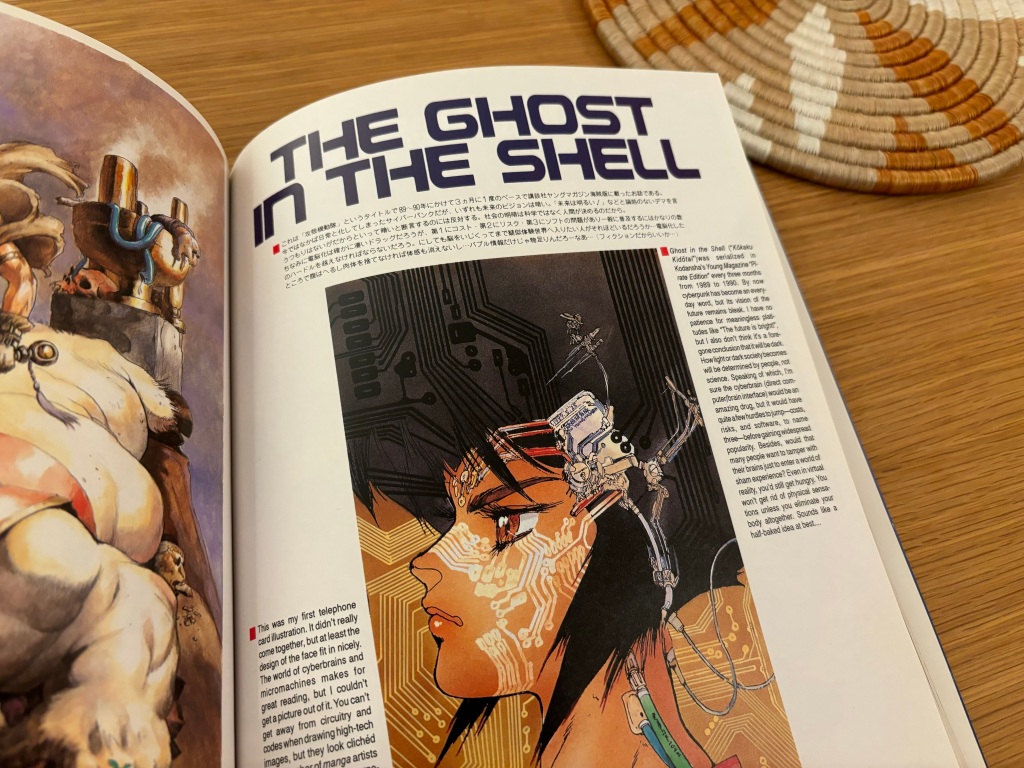
Looking into ghost-like entities one could find on digital machinery, I can't help thinking about Masamune Shirow's work. My first encounter with his work was around 1990, reading about Appleseed on a Minitel server (3615 AKELA). Two years later, I found Ghost in the shell (the manga) and Intron Depot (an art book) in a shop in Lyon and voilà, that was my first foray into this kind of Japanese cyberpunk, sort of a visual follow-up to the Sterling/Gibson novels I used to read around the same time.
While the title suggests a spectral presence in machines, it's actually an homage to Arthur Koestler's oeuvre The Ghost in the Machine... which in turn is a reference to Oxford philosopher's Gilbert Ryle's anti-cartesian view that the human mind is not an independent non-material entity, temporarily inhabiting and governing the body. This topic is addressed by Mirt Komel in paper about the philosophy of Ghost in the shell franchise :
In the cyberpunk world we are immerging in the very word “ghost” denotes an individual’s consciousness that differentiates a human from a robot. Even if someone replaces his own biological body with a fully cyborgized prosthetic one, including a cyberbrain as the locus of the ghost, one can still be considered human as long as one retain one’s own ghost. Ghost-dubbing, that is, duplicating a ghost is nearly impossible, and even if successful the copy is always an inferior version of the original (cf. Shirow, 1997). One of the implications of such a conception of “ghost” addresses the question of human’s consciousness’ originality in contrast to its bodily banality, which can be biologically or artificially reproduced. The implied philosophical question is, despite its futuristic imagery, actually a very old one and commonly known as the “paradox of Theseus’ ship”, as most notably recorded by Plutarch in his biography of Theseus (cf. Plutarch, 1914: 1–88). The paradox as such was addressed in different manners by various philosophers preceding or succeeding Plutarch, from Heraclitus and Plato to Hobbes and Locke, where the ship is chopped by an axe hidden in a sock. 6 Regardless of its many variants the question remains always the same: does a thing remain the same if we change one by one all of its parts? Or to articulate it in a cyberpunk manner: does a human remain the same if we change all his body parts into prosthetics?
Komel, M.. (2016). The ghost outside its shell: Revisiting the philosophy of Ghost in the Shell. 53. 920-928.